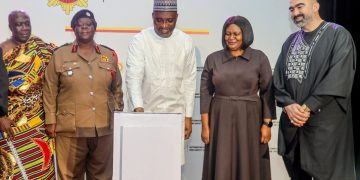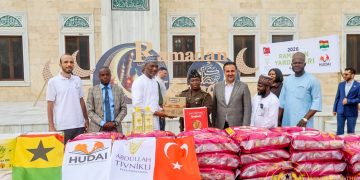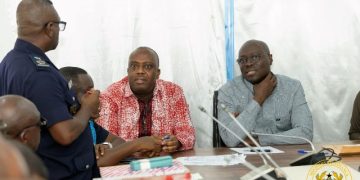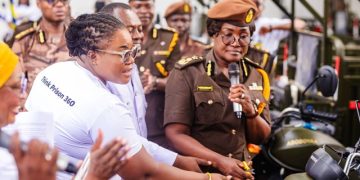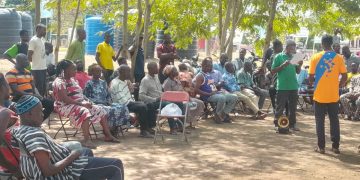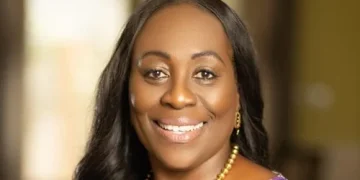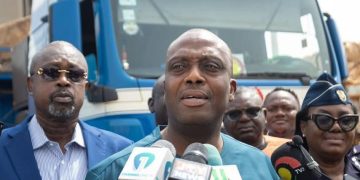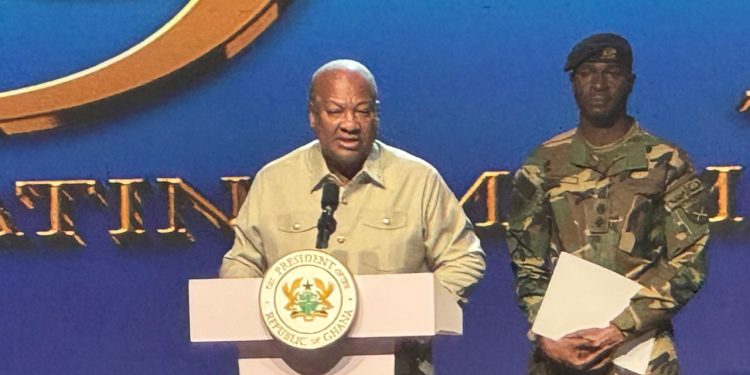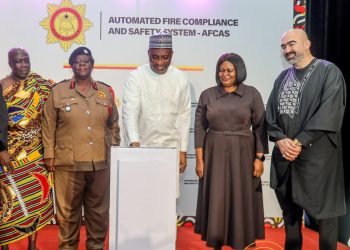President John Dramani Mahama has announced an expanded national programme to reclaim degraded lands and protect Ghana’s river bodies while creating thousands of jobs for youth in mining-affected communities.
The President made the announcement at the 29th Ghana Journalists Association (GJA) Awards held at the Manhyia Palace in Kumasi.
He said the initiative, which forms part of his administration’s environmental restoration agenda, will recruit young people from communities affected by illegal mining. Each recruit will receive a monthly stipend of ₵1,500 as part of the Forest Replanting and Blue River Guards programme.
“We are sowing degraded lands and protecting our river bodies while creating thousands of jobs for young people,” President Mahama stated. “I have asked the Minister of Finance to increase the budget allocation so we can recruit more youth into this initiative.”
The President also commended journalists who have been at the forefront of exposing environmental crimes, citing Erastus Asare Donkor and Ohene Owusu Ohimeng, who won the award for Best Reporter on Illegal Mining.
“Your bravery is noted, it is patriotic, and your efforts strengthen our moral resolve to continue the fight against illegal mining,” Mahama said. “As your President, I will never, never give up the fight.”
Mahama revealed that the Environmental Protection Agency (EPA) had begun a pilot land reclamation project under a public-private partnership model, covering 1,000 hectares of mined-out lands to be replanted with fast-growing and economic tree species, including oil palm. If successful, he said, the project would be scaled up to restore approximately 30,000 hectares of land destroyed by illegal mining.
Beyond environmental efforts, President Mahama outlined a series of governance and institutional reforms aimed at strengthening integrity, competence, and accountability in public service.
These include:
A National Anti-Corruption Framework integrating procurement and expenditure monitoring systems.
A Civil Service “Pay-for-Performance” system to reward merit and productivity.
A reformed Office of the Special Prosecutor with enhanced prosecutorial powers.
Digitization of judicial processes under the Justice Sector Renewal Programme.
A new law regulating the divestiture of state assets, requiring parliamentary approval for transactions exceeding a specified value.
“These are not mere promises,” Mahama emphasized. “They are essential reforms focused on restoring the moral and administrative foundations of our Republic.”
Touching on his government’s development vision, the President reiterated that Ghana’s progress must remain inclusive, sustainable, and people-centered.
He highlighted the 24-Hour Economy Initiative, which promotes round-the-clock production and services to create jobs and enhance logistics, alongside the Big Push Infrastructure Programme, investing ₵38.5 billion in roads, hospitals, and digital infrastructure.
He also referenced the Feed Ghana Industry Programme, designed to connect agriculture to processing and exports to ensure food security and value addition.
“Our development must never come at the cost of our environment or our national soul,” he added.
As Ghana moves toward another election season, Mahama urged the media to uphold professionalism, peace, and national unity.
“Let us shun hate speech and avoid inflammatory rhetoric. Freedom of speech is not a right to sow division,” he said.
He announced the formation of a National Dialogue on Peace and Security, involving media and faith-based leaders, aimed at promoting responsible communication and early detection of conflict triggers.
“Peace is not the absence of noise—it is the harmony of hearts,” Mahama concluded. “The media must serve as the rhythm that sustains that harmony.”
Source:www.kumasimail.com


